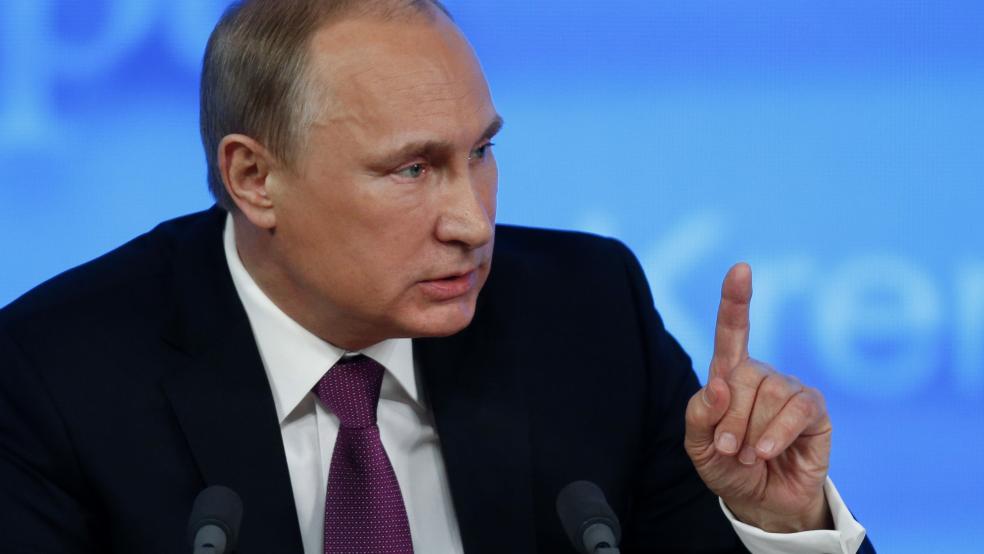In a move widely interpreted by international human rights organizations as an effort to crack down on opposition groups in advance of next year’s parliamentary elections, both houses of the Russian legislature have passed laws making it illegal for citizens to associate with “undesirable” foreign groups. President Vladimir Putin is expected to sign the legislation once it reaches his desk.
The proposal, using very broad language that appears open to interpretation by enforcement authorities, allows the state to ban the operations of foreign and international non-governmental organizations if it finds that they present a risk to “state security,” “national defense” or the maintenance of “constitutional order.”
Related: Russian State Media Says U.S. Is Fomenting Riots in Macedonia
It also creates penalties for Russian groups that associate with organizations labeled as undesirable.
“The intended targets of this new legislation on foreign and international organizations are actually Russian activists and Russian groups,” writes Tanya Lokshina, the Russia program director for Human Rights Watch. “The bill is aimed at cutting them off from their international partners, further isolating them, and squeezing the very life out of Russian civil society.”
Under Russian law, she explains, a group can be declared “undesirable” at the discretion of a prosecutor, with no judicial review.
“An ‘undesirable’ organization must terminate its presence in Russia and stop participating in any projects on Russian territory,” Lokshina writes. “Moreover, it won’t be able to reach out to the public through Russian media or websites – all its information will effectively be banned. And any Russian friends, partners or sympathizers of these organizations should know better than to go near them.”
Related: What’s Pushing Russia and China into Each Other’s Arms
Before the law passed the lower house of the Russian parliament last week, John Dalhuisen, Amnesty International’s director for Europe and Central Asia, said: “These new harsh restrictions are part of an ever-rising repressive tide which is stifling free speech, denying the space for debate and suffocating free expression in Russia.”
The “unprecedented crackdown against non-governmental organizations…is effectively criminalizing lawful activity and squeezing the life out of free speech and association,” he said.
The move by the Russian Parliament, which is dominated by Putin’s United Russia Party, comes a week after reports surfaced that the party would be organizing vigilante squads to patrol Moscow keep public order.
Roughly translated as “Safe Capital” and first reported on by The Moscow Times, the United Russia program is reportedly recruiting several hundred “athletic” young men, mostly drawn from private security firms, military associations and Russia’s famed Cossacks. They will patrol the city, the paper reported, in uniforms supplied by United Russia.
Related: Putin Turns to Volunteer Vigilantes to Patrol Moscow
Putin, a former KGB officer, has frequently claimed that Western intelligence agencies are using non-governmental organizations to undermine the Russian government. In a speech to the Federal Security Service in March, he warned, "Western special services continue their attempts at using public, nongovernmental and politicized organizations to pursue their own objectives, primarily to discredit the authorities and destabilize the internal situation in Russia. They are already planning their actions for the upcoming election campaigns of 2016-18."
The move is just the latest effort by the Russian government to limit the ability of Russian organizations to associate with Western groups. In 2012, Putin signed a law requiring all organizations that accept grant money from international organizations to register with the government as “foreign agents.”
Last year, the government passed a law declaring that no non-Russian company can own more than 20 percent of the shares in any Russian media organization. The law resulted in a number of foreign companies selling off their media holdings to Russian companies that were, frequently, friendly to the Kremlin.
Top Reads from The Fiscal Times:





